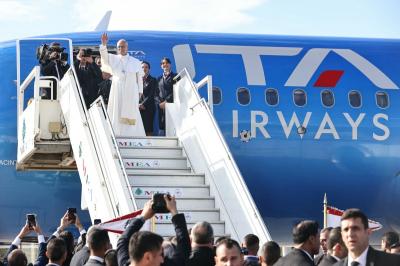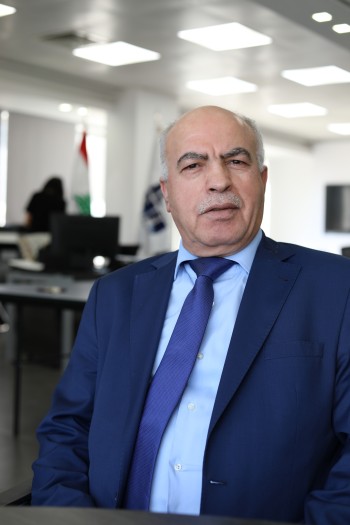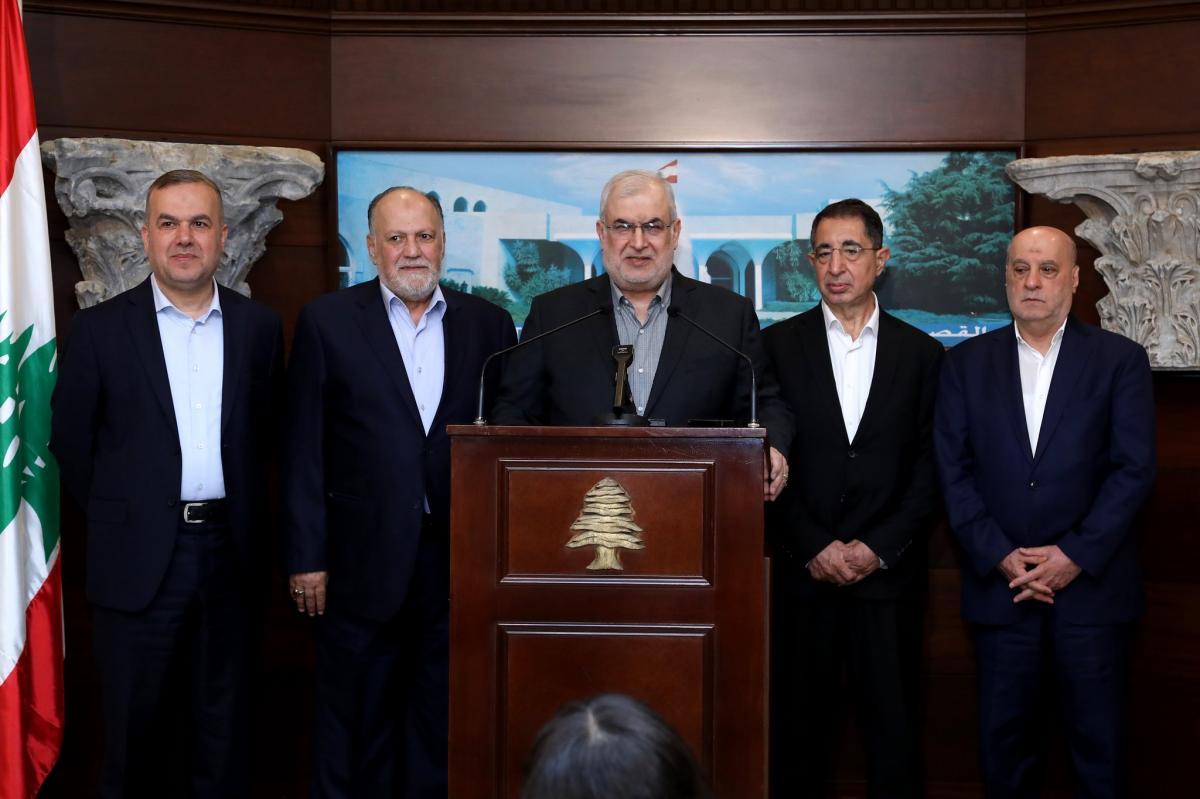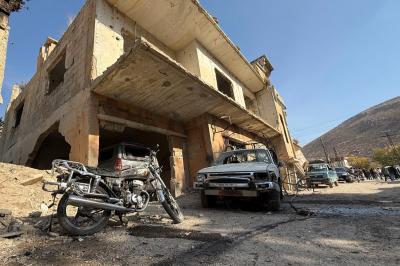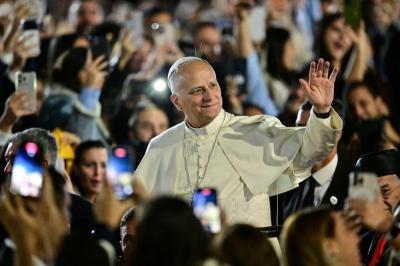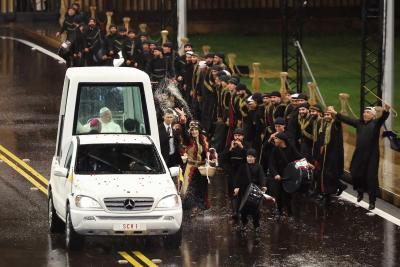The issue of "Hezbollah’s" arms remains a central and unresolved topic of national debate in Lebanon, one that continues to draw international attention—especially from countries directly involved in Lebanese affairs. Meanwhile, Israel persists in violating the ceasefire and UN Security Council Resolution 1701, capitalizing on internal Lebanese divisions over this very file. It is against this backdrop that President Joseph Aoun has taken a personal and discreet initiative to address the issue, launching a quiet dialogue with "Hezbollah" representatives following his election in early January.
The latest meeting between Aoun and a delegation from "Hezbollah’s" parliamentary bloc, led by MP Mohammad Raad on the occasion of the 25th anniversary of Liberation and Resistance Day, served as a public confirmation of this ongoing dialogue and its objectives. Both sides agreed that a detailed discussion of a national defense strategy—within which the fate of "Hezbollah’s" arms would be determined—can only begin once the Lebanese government fulfills its commitment to securing a full Israeli withdrawal and ensuring Israel’s respect of the ceasefire. "Hezbollah", for its part, has already fulfilled its obligations south of the Litani River. Only after Israel halts its daily violations can the Lebanese state move toward full implementation of Resolution 1701.
The meeting allowed President Aoun to alleviate some of the internal and external pressure surrounding the weapons issue by reaffirming his commitment to resolving it through dialogue. "Hezbollah", in turn, expressed its openness to discussing its arsenal, but strictly within the framework of a national defense strategy. The very image of the meeting conveyed a willingness to engage in meaningful discussions—on the condition that the tone remains calm and free from the political tension often stirred by Prime Minister Nawaf Salam or other various factions.
Aoun and Hezbollah" also agreed that the prerequisite for launching defense strategy talks is Israel’s full withdrawal and cessation of hostilities. The discussions also addressed Israel’s reported efforts to establish a “buffer zone” along Lebanon’s southern border, extending into southern Syria—a move that could hinder displaced southerners’ return to their villages.
Under the theme of “steps to ease tensions,” the meeting broached the subject of potential actions that “Hezbollah” could take in this regard. Aoun referenced "Hezbollah’s" conduct in the 2000 liberation, noting that it followed a clear and specific strategy. He suggested that today’s reality is different and implied—without explicitly stating it —that certain heavy weapons in "Hezbollah’s" possession, particularly long-range missiles, may no longer be necessary. These weapons are often cited by both the U.S. and Israel to justify continued Israeli aggression north of the Litani and into the Bekaa Valley, on the grounds that they pose a threat to Israeli security.
This meeting paved the way for a calm and confidential exploration of a national defense strategy. Aoun and the government pledged to lobby Washington and Paris, the key international stakeholders, to pressure Israel into a complete withdrawal. The president stressed that addressing the weapons issue must be done calmly and without haste to avoid sparking internal strife the country can ill afford.
However, "Hezbollah’s" delegation noted a disconnection between the president’s approach and that of Prime Minister Salam, whose rhetoric often appears confrontational. The situation escalated recently at the City Sports Stadium when supporters of the Amal-"Hezbollah" alliance heckled Salam. "Hezbollah" quickly issued a statement condemning the move and distancing itself from the perpetrators. Salam, however, responded by accusing the “Hezbollah” of “inciting then apologizing”. One of his ministers later confirmed that the party had in fact informed them in advance of the statement denouncing the move, which came from unaffiliated individuals.
The Presidential meeting also highlighted how internal criticism of "Hezbollah’s" weapons intensifies whenever news surfaces of an impending visit by U.S. envoy Morgan Ortagus. The delegation speculated that her next visit might be her last, as she could be reassigned to a post unrelated to Lebanon.
Some political observers credit President Aoun for handling the weapons file with caution and diplomacy, avoiding the kind of rhetoric that could drag the country into dangerous waters. One major sticking point remains: certain factions still refuse to acknowledge that Israel’s withdrawal is a necessary condition for initiating serious talks on "Hezbollah’s" arms. This fundamental disagreement continues to fuel internal political conflict and gives Israel strategic leverage. Aoun, however, is addressing the issue out of a firm belief that it cannot be resolved through inflammatory rhetoric, while some others see an opportunity to weaken their political rivals—namely the Amal-"Hezbollah" alliance—by leveraging the outcomes of the recent war.
The Presidential talks also touched on the issue of reconstruction. "Hezbollah’s" delegation criticized the government for its ongoing delays in launching the basic steps required to rebuild war-damaged areas—such as surveying destruction, estimating losses, and providing temporary solutions for displaced residents. Some believe that the government’s inaction has fueled frustration among "Hezbollah’s" support base, especially as Salam continues to push for disarmament before Israel fully withdraws from southern Lebanon. For many, this stance is seen as provocative—not only because of its timing, but also because his government has yet to fulfill even the preliminary obligations of post-war reconstruction.
Please post your comments on:
comment@alsafanews.com
 Politics
Politics
